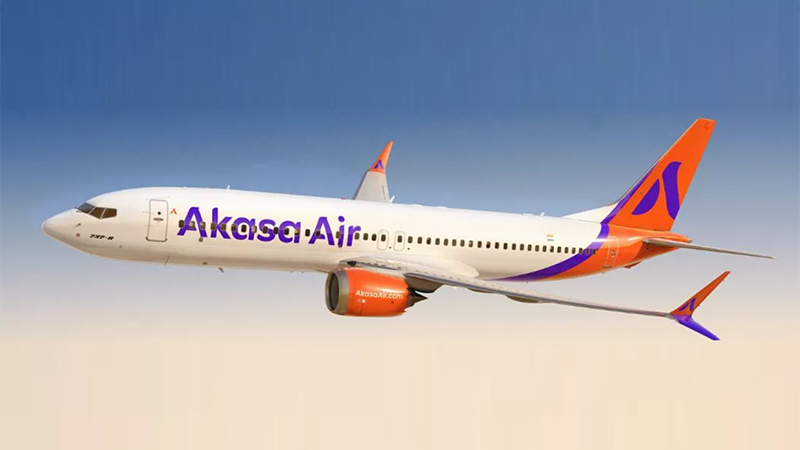Akasa Air may soon operate flights to Saudi Arabia, Kuwait, and Qatar. The three Middle Eastern countries are popular destinations from India and the low-cost Indian carrier has been given flying rights based on existing bilateral rights for these destinations, according to reports in the Indian media. The flights should start by year end, and official announcements are expected soon.
It is a dream come true for the airline which had been exploring destinations in the Middle East as well as Southeast Asia. However, Dubai, the most popular destination, still remains a distant dream for Akasa. The bilateral agreement for flights between India and Dubai has been exhausted, and Akasa will have to wait until changes are announced. The India-Dubai sector is one of the most lucrative, and airlines from both countries vie for increasing share of the seats allocated for this sector.
The agreement between the two countries signed in 2014 allows only 66,000 seats per week to both nations. The UAE airline Emirates has requested the Indian government to allow it an additional 50,000 seats, but Indian authorities aren’t too keen as it would hurt Indian airlines, particularly with Air India trying to revamp its global offering.
Akasa Air co-founded by the billionaire and stocks trader Rakesh Jhunjhunwala and former Jet Airways CEO Vinay Dube received a ‘no objection certificate’ (NOC) from the Ministry of Civil Aviation in October 2021 to start operations.
With a fleet of Boeing 737 MAX planes, Akasa as of now aims only medium-haul international destinations. The airline increased its workforce significantly as part of its preparations to fly overseas. According to CEO Vinay Dube, the airline has hired up to 800 new employees as it gets ready for its Middle East operations.
Akasa Air has now met the government condition that an airline must have a fleet of at least 20 aircraft before it can fly abroad. To the airline’s advantage, the previous 5/20 rule is not in place anymore whereby a new Indian airline was required not only to have a minimum of 20 planes in its fleet but also to operate domestically for five years before applying for overseas flights.
Akasa’s presence in the domestic market has increased steadily and it now commands a market share of almost 5%. In June, it carried more than 600,000 passengers, beating SpiceJet, which has been in business for over a decade.


Leave a Reply